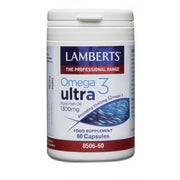100,000+ Orders Shipped
Call us free: 0800 098 8888
Family Run 40 Years +
Money Back Guarantee
Vitamin A
Can’t find what you are looking for? Contact Us and we will look to get it for you (at a great price and no delivery charge). If you are the first person to suggest a new product to us that we start to keep in stock, we’ll even send you one for free!
Vitamin A (Carotenoids) are responsible for the bright colors found in vegetables like sweet potatoes, tomatoes, peppers, eggplants, and pumpkins. They're also precursors to vitamin A, which supports healthy skin, bones, teeth, and immune system function. However, they don't provide any special powers of night sight or cure your dependence on contacts. But if you eat enough, they'll keep your eyeballs healthy.
Vitamin A also promotes the development and function of immune system components including white cell formation, maintains healthy skin, bones, teeth, eyes, and reproductive organs, and regulates cell growth and proliferation.
Vitamin A - Food Sources
You will find vitamin A in leafy greens (such as kale, spinach, and broccoli), oranges and yellows (such as carrots, sweet potatoes, and winter squashes), and other fruits and veggies (like pumpkins and summer squashes) also contain a lot of carotenoids (Vitamin A).
Vitamin A - Deficiency and Toxicity
Vitamin A deficiency is uncommon in Western countries but may be present. If you have conditions that interfere with normal digestive function, you may be at risk for vitamin A deficiency. Children and adults who live in poverty or restrict their diets for any reason are also at risk. Vitamin A deficiencies can lead to fatigue, susceptibility to infections and infertility. If any of these symptoms persist for longer than two weeks, seek medical attention immediately.
Vitamin A - In Your Body
Vitamin A is essential to your overall well-being. It helps support cell development, immune system functioning, and fetal development. One of the most important roles of vitamin A is supporting healthy eyesight.
It also protects and maintains the cornea, which lies at the front of your eye, and the conjunctiva, a transparent membrane covering the surface of your eyes and the inner lining of your eyelids.
Vitamin A - Frequently Asked Questions
What happens if I take too much vitamin A?
Research has suggested that people who consume more than an adequate daily intake of vitamin A over many decades may be at risk for bone fractures later in life.
How much vitamin A do I need?
The total vitamin A value of a particular type of fruit or vegetable is usually expressed as micrograms (µg)of retinol equivalents (RV).
The amount of vitamin A adults aged 19 to 64 need is:
Men: 700 µg a day
Women: 600 µg a day
Why do people take vitamin A?
Topical and oral Retinoids are prescribed medications used to treat various skin conditions, including wrinkles and scars. It's also used to treat measles and dry eye in patients who have low levels of vitamins A and D. Vitamin A is also known to be effective against certain types of cancer.
Are you interested to learn more about Vitamin C or Vitamin B?






















